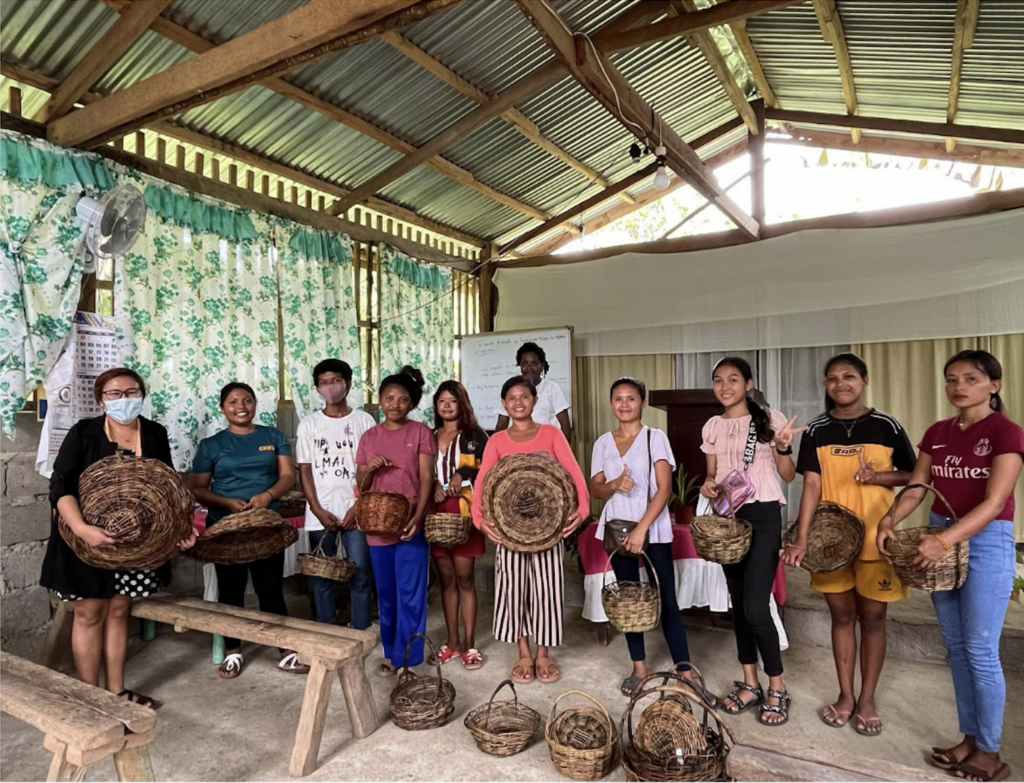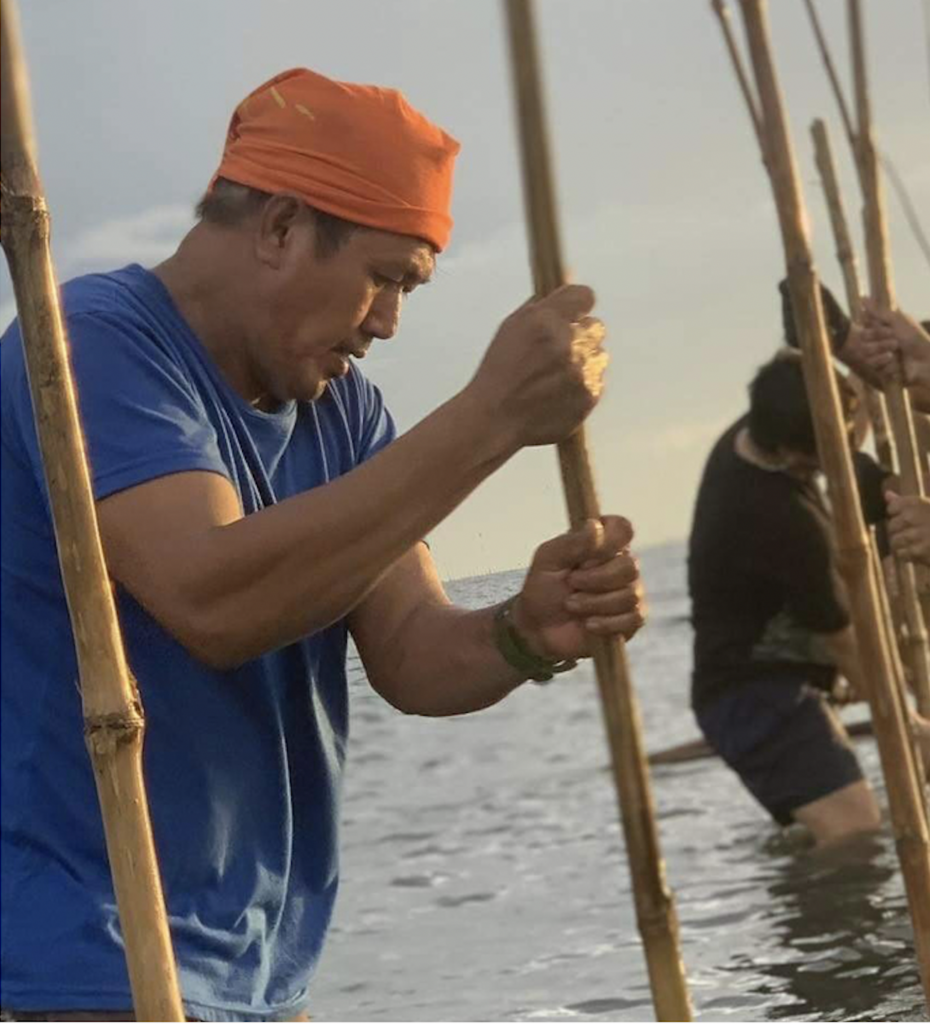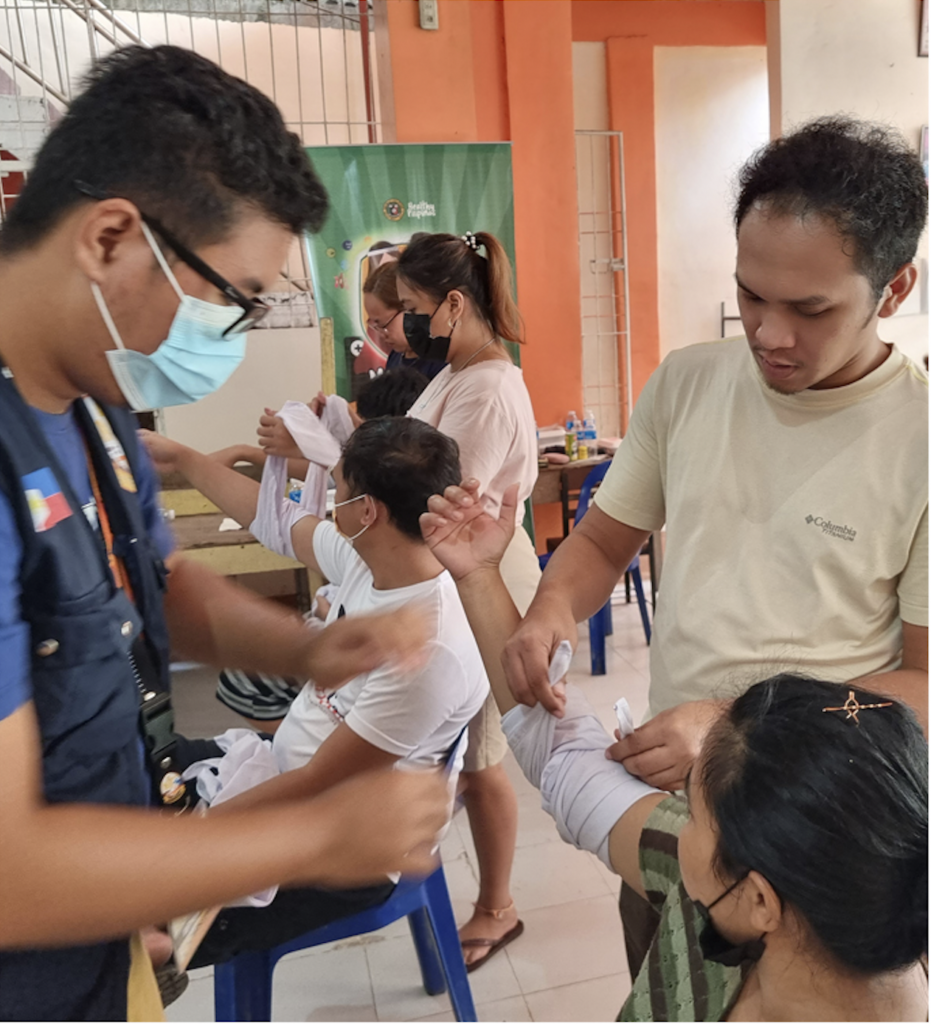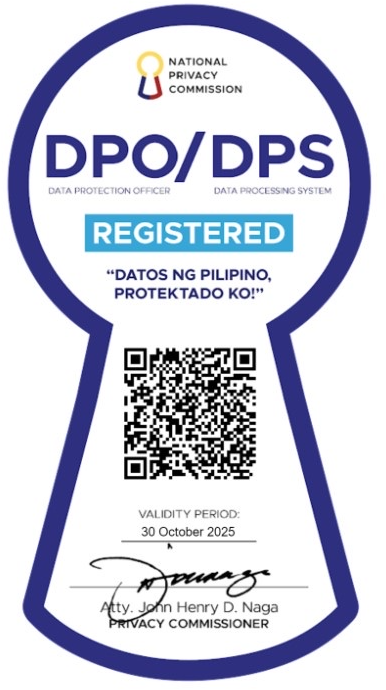“Leadership is the capacity to turn vision into reality.” – Warren Bennis
Three projects, three teams making an impact in their communities.
Three leaders whose vision helps to improve people’s lives.

As the daughter of Mamanwa tribal leaders, Chona Tiambong was exposed to the needs of her community at a young age. She was taught by her father to put people first, respecting culture and tradition—values that shaped her as a youth leader and an IP (indigenous peoples) Youth Ambassador in Agusan del Norte.
Encouraged by the local youth council leader, she grabbed the opportunity to join Ayala Foundation’s community-based youth leadership program, Leadership Communities (LeadCom). She saw LeadCom as the chance to implement the skills she learned from her parents and continue their legacy of helping people.
As part of LeadCom, Chona and her fellow youth leaders formed Ant-Warriors, a team dedicated to helping underserved people in their communities.
“We considered our team just like ants that create a clear division of labor and work cooperatively and efficiently,” she shares when asked about the origin of the team’s name. “Every member is facilitating and executing the task they are given, and we are helping one another to have better outcomes and build a good relationship with each other. We also considered our team as warriors because most of the members tend to look for opportunities and focus to complete the tasks rather than make excuses or worry about not being able to finish the tasks.”
They established IP Handicrafts, a project that weaves culture and tradition with livelihood opportunities. Through this initiative, out-of-school youths (OSY) make a living by making and selling handcrafted items made of nito, a native vine that grows abundantly in the forests of Mindanao.

Through IP Handicrafts, out-of-school youth are trained in weaving nito to create household items
The team’s journey has not been easy. Time management, cultural sensitivities, low self-esteem in the youth, and conflicting ideas were some of the issues they faced. But staying true to their name, the warriors keep fighting.
With help from the Department of Trade and Industry, the local government of Santiago, and their LeadCom mentors, the team is able to sustain the project. Today, IP Handicrafts has 15 indigenous OSY volunteers and 20 more youth volunteers.
Following the success of IP Handicrafts, Chona aims to help more people in her community. She also hopes to inspire more youth leaders to follow in her footsteps.
“As the young leaders of tomorrow, you have the passion, energy, and commitment to make a difference. What I’d like to really urge you to do is to have a global vision. I think there is a big and significant difference between being a leader and being a manager — leaders lead from the heart,” she says.
In his teen years, Nobe Dequiña wanted to find his passion, looking for activities to help develop his self-esteem and well-being. It wasn’t until his early twenties, when he joined LeadCom and started Shell N Share, that he found the meaning he was searching for.
Shell N Share helps fisherfolk living along the coast of Barangay Bubog in Talisay City, Negros Occidental breed different kinds of shellfish. The sustainable livelihood initiative allows the locals to supplement their income, improve the nutrition of community members, and promote environmental safety and protection.
Together with the barangay council and Sangguniang Kabataan, Nobe and his team have helped ten families in the area.
Nobe’s group call themselves Team Crablets, a nod to the shellfish their barangay is known for. They hope that through shellfish breeding, community members can uplift their lives.
The journey to accomplish this goal has not been easy – natural disasters and a lack of manpower threatened the success of the project. At one point, intruders even dared to steal the shellfish the team was breeding. But for the sake of the community, Nobe and the team continued their mission.

Fisherfolk in Barangay Bubog set up their equipment for shellfish breeding
He says that helping others has simultaneously helped him – allowing him to grow as a person and improve his leadership skills. “The Team Crablets journey was surreal in a way that, at our particular age, we already did something for our community that also developed our well-being,” he shares.
With his LeadCom experience, Nobe says he has learned many things – to be more empathic towards others, to have more self-confidence, and to unleash the leader within himself.
To aspiring leaders who are unsure about themselves, Nobe encourages them to “keep on keeping on”.
“Life is about creating yourself and a lifetime process of growth. We may not understand our purpose for now, but I’m sure you’ll figure it out at the right time.”
He also encourages them to be brave and pursue their goals despite doubts.
“You must do the things you think you cannot do.”
In a country hit by dozens of typhoons and earthquakes a year, disaster preparedness is crucial.
Realizing the need to help disaster officials respond to their community, Paul Santos and fellow youth leaders started Aligap Kabataan, a disaster readiness training project for youth in Catbalogan City, Samar. Taking its name from the words alisto (alert) and agap (prevent), the project aims to provide a quick response to local residents during times of calamities.
Aligap Kabataan works by taking calls from residents during calamities, verifying their information and passing these onto the proper agencies and disaster response teams. The volunteers with the initiative are trained by Paul’s team in skills such as first aid, disaster risk reduction, and information management.

Volunteers with Aligap Kabataan are trained in first aid to help augment local disaster management teams
Paul is no stranger to serving the community, as he was previously as a member of the local chapter of the Philippine Red Cross. He decided to scale up his involvement in the community by joining LeadCom and forming the Whistle Warriors, a reference to the whistles used in disaster situations.
He says the LeadCom experience has helped him develop as a person – becoming more creative, open-minded, and honing his decision-making skills. Today, he serves as a leader and role model to the other members of the local youth disaster management team.
“Aside from fulfilling my responsibilities, I always make sure to know my limitations, act morally, and take care of my comrades. The individuals who make up this organization are as important as our advocacies and projects that have been carried out. This won’t succeed and be effective without their support, assistance, and cooperation,” he says.
To date, Aligap Kabataan has trained over 70 youth members with 5 more from the barangay sectors. Their goal is for every barangay in Catbalogan City to have a 10-member response unit to help when disasters hit. Paul knows that the task is challenging but hopes that his words inspire others like him.
“Don’t give up; always have faith in your ability to succeed. Failures are not ways to give up; rather, they are a sign that you still have hope of pursuing your purpose. Additionally, your commitment and efforts should be in line with how passionately you want your dreams to come true. High dreams without proper actions, without commitment, and discipline – will be pointless. At the end of my speech, I quote Petra Nemcova who said, ‘We cannot stop natural disasters, but we can arm ourselves with knowledge: so many lives wouldn’t have to be lost if there was enough disaster preparedness.’”
Leadership Communities (LeadCom) harnesses the youth’s potential for leadership and community service by helping them ideate and implement projects that address community issues. Started in 2011, the program has trained over 2,500 youth leaders, with over 40,000 community members benefitting from their initiatives.
Chona, Nobe, and Paul prove that with the right vision and a compassionate heart, everyone can become a great leader.
To support youth leaders in creating projects for their communities, visit our donation portal here or use BPI eDonate.


